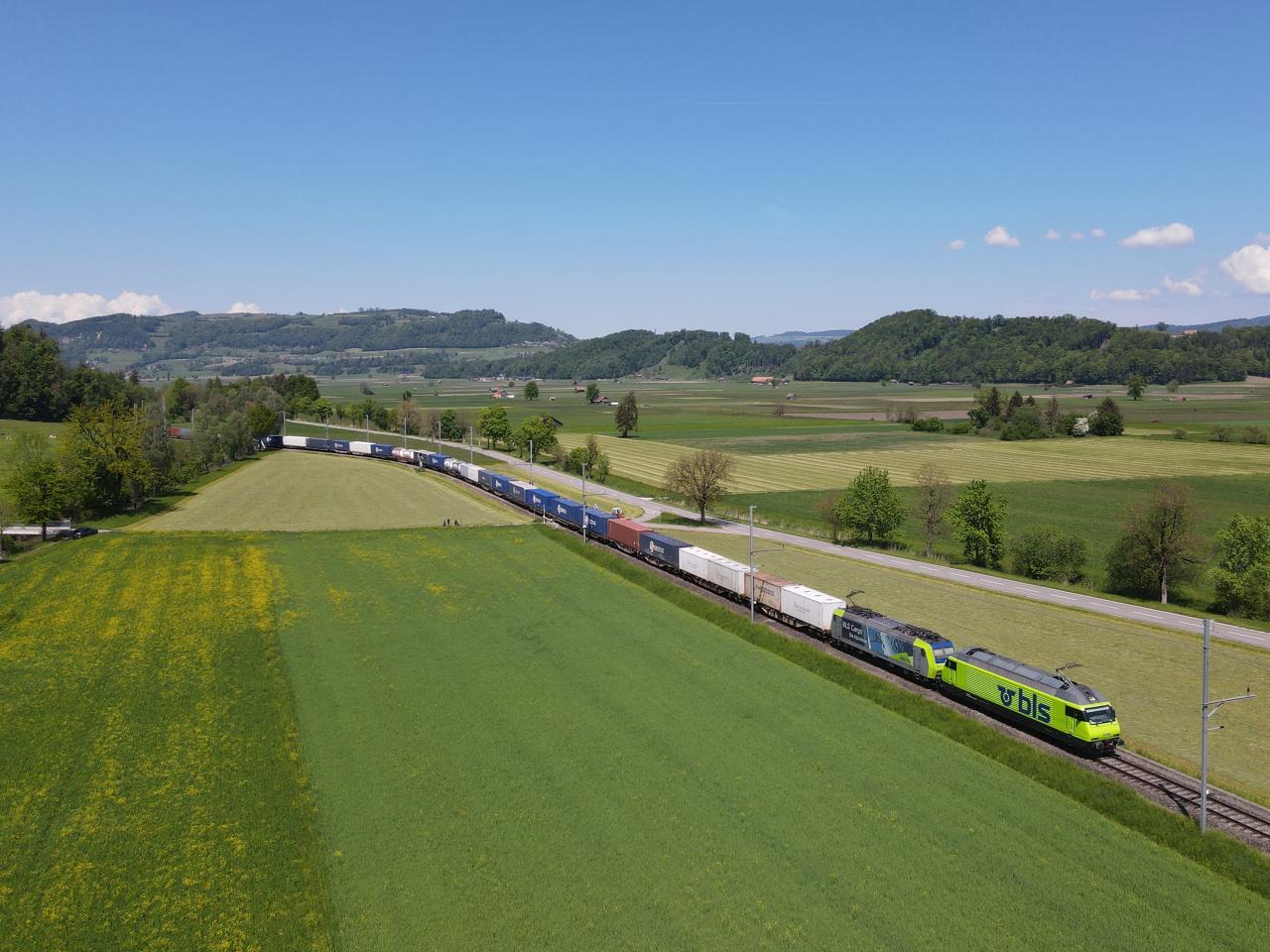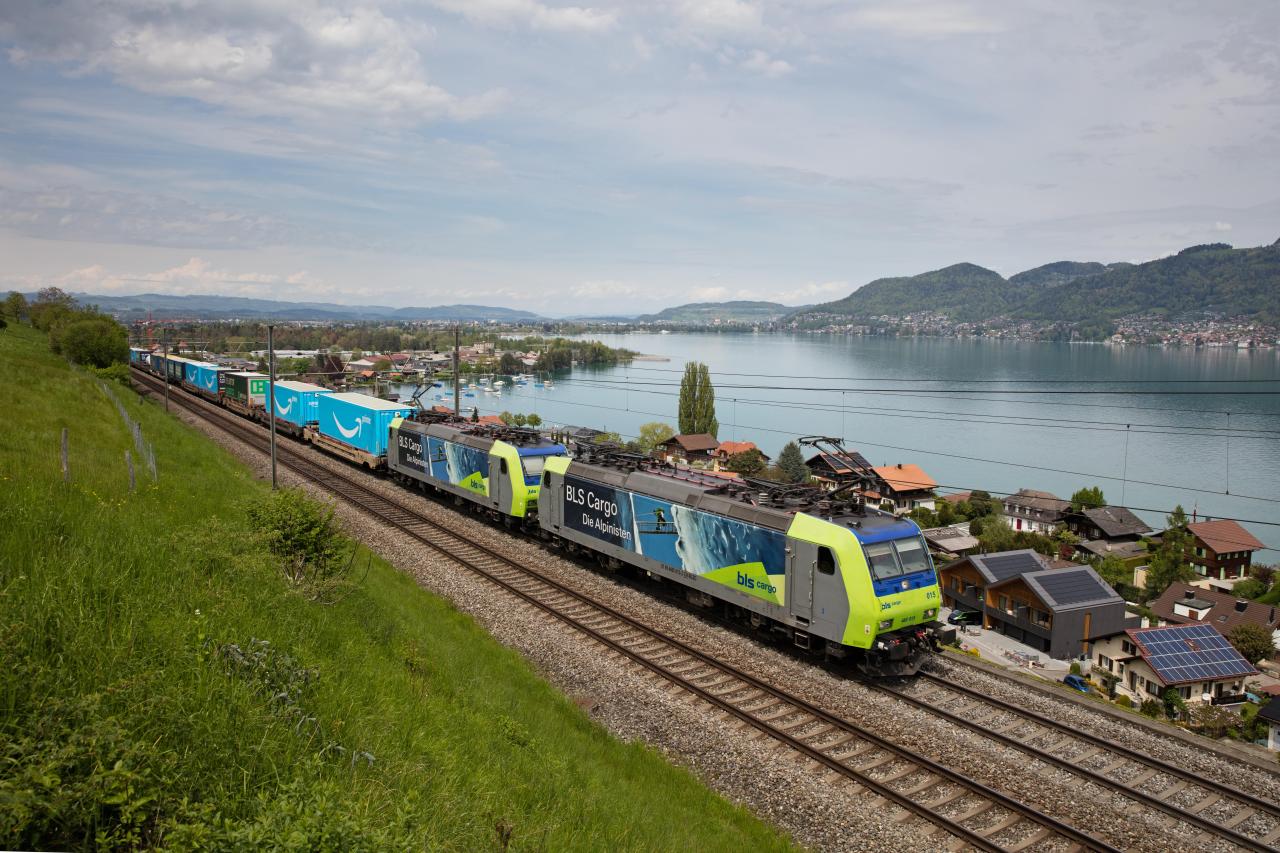BLS Cargo welcomes the Federal Council's position on the modal shift report and calls for further measures Switzerland's modal shift policy, with a rail share of over 74 percent, is a successful model. Now it is time to "keep at it", because the forecast growth in traffic, the safeguarding of international logistics chains, the ongoing climate debate and the high demand for sustainable transport require Switzerland to play an active role in transalpine rail freight transport.
Switzerland's modal shift policy in transalpine rail freight transport is a success story. Rail's market share in the first half of 2021 was 74.3 per cent, the highest level in the last 25 years. This success is due to a skilful interplay of various transport policy measures: Consistent implementation of liberalisation in rail freight transport, the construction of new and modern NEAT rail infrastructures (Lötschberg, Gotthard and Ceneri base tunnels as well as the 4-metre corridor) and operational compensation in combined transport.
And now: hold on
Despite the high market share, the Swiss modal shift policy is not yet over. From BLS Cargo's point of view, it is more important than ever to stabilise the successes and be ready for future developments.
The "Transport Perspectives 2050" of the Federal Office for Spatial Planning (ARE) assume a 37 percent growth in transit traffic by 2050, with unaccompanied combined transport even expected to double. Moreover, rail freight transport is many times more energy- and climate-efficient than road transport and plays a decisive role within the framework of the climate policy objectives of the Confederation and also the EU.
The pandemic has shown how important rail freight transport is for supplying industry and the population. The current instabilities in the international transport and logistics market and the high vulnerability of global logistics chains to a wide variety of disruptions require the utmost attention and planning skills from rail freight operators. This can only be achieved if transport policy goals are upheld and measures are pursued.
Federal Council measures are welcomed
BLS Cargo is very pleased to note that the importance of modal shift policy has been confirmed and that Federal Councillor Sommaruga has linked it to "modal shift policy is climate protection policy". In particular, the Federal Council's intention to continue the Rolling Highway (Rola) for the period 2024-2028 and the opening of the consultation process on this is very welcome. Today, the Rola is a sensible supplementary product for non-craneable semi-trailers, which shifts 80 - 100,000 lorries onto the railways every year.
Urgent progress called for in rail infrastructure
For BLS Cargo, it is crucial that urgently pending measures on the infrastructure on the north-south corridor are implemented by 2030 so that the success story of transalpine rail freight transport through Switzerland can continue:
- The access routes must be significantly developed by 2030. This includes the overdue four-lane expansion of the German Karlsruhe-Basel route, the expansion of the route on the left bank of the Rhine through France as an alternative to the Rhine Valley route in Germany and the implementation of the expansion of the Lötschberg-Simplon axis agreed with Italy. These measures are necessary to ensure the necessary capacity, as route redundancies and to ensure high route quality for freight traffic.
- International coordination of the infrastructures, this in the introduction of the European Rail Traffic Management System (ERTMS), construction site planning, internationally continuous train path planning and incident management with appropriate priority and bypass options for freight traffic are to be ensured by corridor organisations and infrastructure managers.
- Track access charges in Switzerland should be brought into line with the existing European level. This corresponds to about half of the current track access charges in freight transport. A reduction in train path prices should also be understood as a concrete measure to reduce CO2 emissions.


